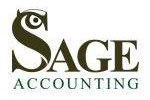HMRC issues urgent warning to SEISS grant recipients
Enforcement surrounding Self-Employment Income Support Scheme (SEISS) grants is being stepped up. HMRC is now writing to some businesses insisting that they take certain steps within 30 days - or repay the amounts received. What’s going on?

The SEISS was set up to help sole traders and partnerships through the coronavirus pandemic. The first three tranches were paid between March 2020 and January 2021, and must be included as taxable turnover in 2020/21. However, HMRC is currently sending a letter to businesses regarding the 2019/20 returns.
While there are no grant payments to report on the 2019/20 returns, the letter is a reminder that being self-employed in 2019/20 was a prerequisite to claiming under the SEISS. The businesses being contacted are those which have not submitted a return for 2019/20 and those that have but with no self-employment or partnership pages included. It’s perfectly possible that this is just a simple omission. However, it is also possible that a business has misunderstood the eligibility criteria and made a claim in error.
If a business receives a letter it must take action and submit the missing information within 30 days or pay back the SEISS grants received. Of course, if it transpires the business wasn’t eligible for the grants, they will need to be paid back in any case, and a penalty may be charged
Related Topics
-
Directors’ fees - can you escape PAYE?
You’ve been asked to join the board of a company in a purely advisory role. For tax and NI efficiency you want your fees to be paid to your own company. Does this arrangement fall foul of HMRC’s off-payroll rules?
-
P46 (car) deadline
-
Filing deadline for self-assessment tax returns

 This website uses both its own and third-party cookies to analyze our services and navigation on our website in order to improve its contents (analytical purposes: measure visits and sources of web traffic). The legal basis is the consent of the user, except in the case of basic cookies, which are essential to navigate this website.
This website uses both its own and third-party cookies to analyze our services and navigation on our website in order to improve its contents (analytical purposes: measure visits and sources of web traffic). The legal basis is the consent of the user, except in the case of basic cookies, which are essential to navigate this website.